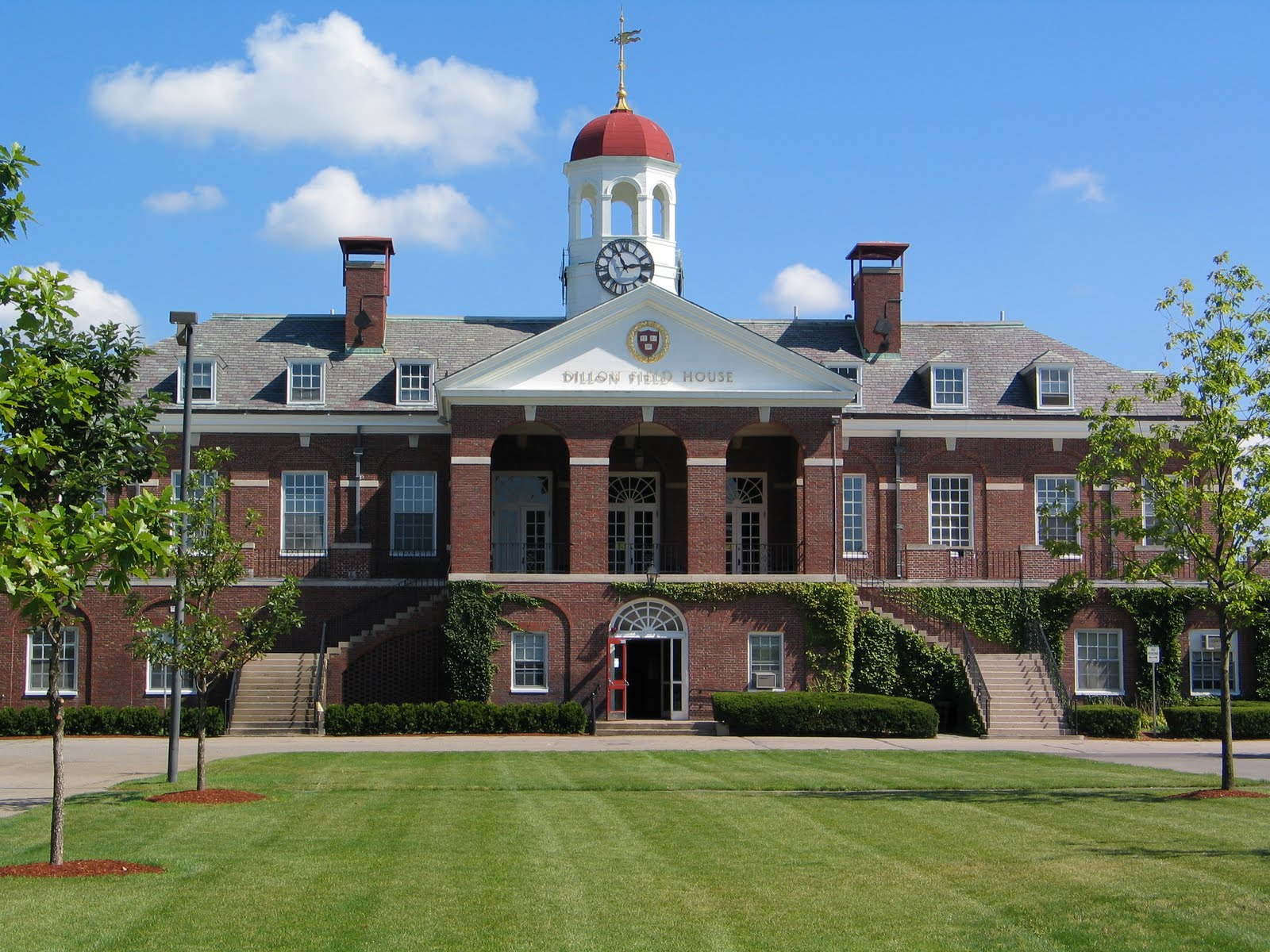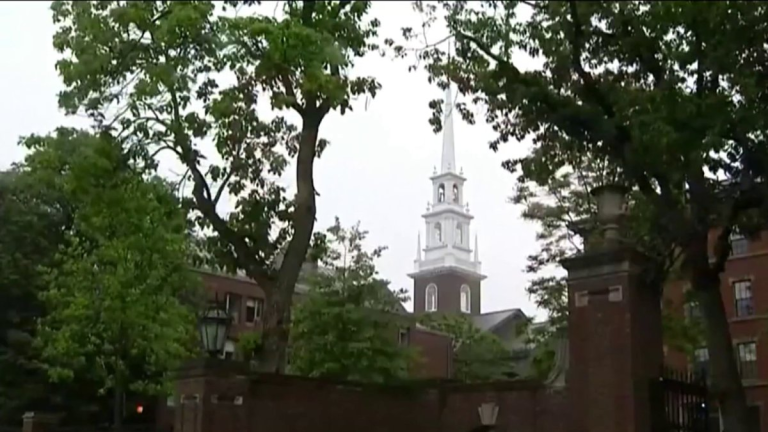
Harvard University, one of the oldest and most prestigious academic institutions in the world, stands at the forefront of a heated debate regarding university independence in the face of governmental demands. In recent events, the Trump administration has issued controversial requirements that threaten vital research funding, which amounts to an investment of approximately $9 billion. Harvard’s leadership has firmly rejected these demands, reaffirming that they will not compromise their constitutional rights or autonomy in academic governance. The administration’s actions have sparked significant discussions on how academic funding issues intersect with the protection of free speech and diversity of thought on campus, particularly in light of rising antisemitism on college grounds. As Harvard navigates these challenges, the effectiveness of research funding and the role of universities in promoting innovation are under scrutiny.
Harvard University, a beacon of higher education, faces pressing challenges that encapsulate the broader struggles of academic institutions today. Recent pressures from the federal government have raised critical questions about university autonomy and the implications of compliance with political mandates. The discussions surrounding funding for research highlight significant academic funding issues, particularly as they relate to government influence over educational curricula and campus environments. Collaborations between universities and federal bodies have long spurred breakthroughs in various fields, yet this relationship now risks being undermined by allegations of antisemitism and academic misconduct. In this complex landscape, the effectiveness of funding for research initiatives must be considered alongside the universities’ crucial role in upholding independent thought and scholarship.
The Impact of Trump Administration Demands on Harvard University
The recent demands put forth by the Trump administration have sparked significant controversy, with Harvard University at the forefront of the debate. Harvard’s leadership has firmly stated that these demands threaten the institution’s autonomy and the integrity of its academic endeavors. With a staggering $9 billion in research funding potentially at stake, the implications of complying with such demands could lead to detrimental changes in academic governance and pedagogical freedom. Harvard President Alan Garber has made it clear that the university will not compromise its independence or relinquish its constitutional rights, emphasizing that academic integrity must not be sacrificed for financial stability.
Moreover, the Trump administration’s insistence on audits of academic programs and assessments of viewpoints within the university raises concerns about governmental overreach into educational spaces. The administration’s focus on political compliance introduces a climate of fear and potential censorship, counteracting the progressive values that a prestigious institution like Harvard strives to uphold. This issue extends beyond Harvard, as multiple universities face similar pressures, impacting the broader academic landscape and the principles of independent thought necessary for scholarly pursuit.
Harvard’s Commitment to University Independence
In light of the external pressures from the Trump administration, Harvard University has reaffirmed its dedication to academic freedom and institutional independence. According to Alan Garber, the actions taken against Harvard are seen as ‘unmoored from the law,’ underscoring the belief that no government should dictate how private universities operate. Harvard has a rich legacy of promoting intellectual diversity and academic rigor, and its leaders are committed to resisting any infringements on these core values. By standing firm against these pressures, Harvard sets a crucial precedent for other educational institutions navigating similar challenges.
The battle over academic independence at universities like Harvard is emblematic of a larger national conversation about the role of government in higher education. It points to significant concerns regarding the potential for interference not only in curriculum standards but also in the broader scope of research funding. As institutions depend on federal funds for various projects, the threat of losing these resources due to differing ideological views highlights the precarious balance universities must maintain between free inquiry and financial support.
Addressing Antisemitism on Campus Amid Political Pressures
Harvard University has faced criticism regarding its response to antisemitism on campus, particularly following incidents arising from political unrest. In his response to the Trump administration, Garber emphasized that the university is committed to combating antisemitism through actionable measures rather than succumbing to governmental demands. The university has implemented initiatives aimed at protecting Jewish students and fostering an inclusive environment, demonstrating its resolve to address discrimination alongside the crucial issue of academic independence.
The challenge of addressing antisemitism amidst growing political tensions reflects a broader issue faced by universities across the nation. Reports of antisemitic incidents on college campuses continue to rise, prompting educational institutions to evaluate their approaches to fostering tolerance and understanding. At Harvard, the administration is taking steps to ensure that its response to antisemitism does not lead to compromises in its educational philosophy or autonomy, recognizing that any solutions must align with the university’s core values of scholarly freedom and integrity.
The Importance of Academic Funding in Innovation
Research funding is critical not just for individual universities like Harvard but also for the entire fabric of American innovation. As highlighted by economic reports, each dollar invested in research through institutions like Harvard yields significant returns, stimulating economic growth and fostering groundbreaking technologies. The administration’s threats to cut off funding could stifle advancements in vital fields such as healthcare, artificial intelligence, and biotechnology, endangering the competitive edge of the United States in a global economy increasingly dominated by nations like China.
Moreover, the intricate relationships between universities, government, and private sectors have led to historical breakthroughs that have transformed society. Government support for university research has facilitated paradigmatic shifts and life-saving innovations, demonstrating that funding is not merely financial support but a catalyst for significant societal advancements. The potential loss of such funding due to political pressure could not only hamper progress at Harvard but also have cascading effects on industries that rely on academic partnerships to drive research and development.
The Role of Harvard in U.S. Innovation and Research
As a leading academic institution, Harvard University plays a crucial role in shaping the landscape of research and innovation in the United States. Its partnerships with government agencies have historically yielded a wealth of knowledge and technological advancements, driving the nation forward in various scientific domains. The recent report from the National Institutes of Health demonstrates the vital economic impact of university research, further solidifying Harvard’s standing as a pillar of innovation that attracts talent and investment.
However, these contributions cannot be taken for granted in light of potential funding restrictions introduced by the Trump administration. With threats to withdraw necessary support, the very framework that encourages collaboration between public institutions and private enterprises may be jeopardized. Maintaining this partnership is essential for ensuring the continuity of groundbreaking research, particularly as global competition intensifies. Harvard’s commitment to safeguarding its independence amidst these challenges highlights its pivotal role in protecting the future of American innovation.
Navigating Academic Freedom and Government Regulations
The ongoing tension between universities and governmental regulations raises important questions about the nature of academic freedom. Harvard’s refusal to comply with demands from the Trump administration represents a broader resistance among educational institutions to external pressures that can undermine their autonomous missions. By asserting their right to self-govern, universities protect the spirit of free inquiry that has been foundational to scholarly pursuits and societal advancement.
As the debate over academic freedom continues, it becomes increasingly essential for universities to articulate their values and stand firm against any governmental overreach. The challenges posed by regulatory pressures are complex, but universities like Harvard exemplify the need to navigate these waters without compromising their integrity or educational objectives. The ongoing discourse around academic freedom will undoubtedly shape the future of higher education and its relationship with political powers.
Funding Dynamics: Research Support and Institutional Independence
The dynamic of research funding is closely linked to the independence of institutions like Harvard, where federal support has historically enabled groundbreaking advancements across various fields. However, the recent demands from the Trump administration complicate this relationship, suggesting an unsettling precedent where financial support may come with strings attached. Harvard’s leadership has voiced concerns that attempting to align academic programs with political agendas undermines the essence of higher education and its contributions to society.
Navigating this complex landscape requires universities to be strategic in their approach to funding and governance. The preservation of institutional autonomy is paramount to ensuring that the educational mission remains untainted by external influences. While funding is crucial, the integrity of Harvard’s academic programs must remain uncompromised, allowing for an environment where intellectual freedom can flourish irrespective of the prevailing political climate.
The Commitment to Combat Antisemitism: Harvard’s Initiatives
In light of increasing concerns over antisemitism on campus, Harvard University has shown a proactive commitment to addressing these issues while reaffirming its dedication to academic independence. The university has outlined numerous initiatives aimed at creating a safe and inclusive environment for all students. This approach balances the need to protect marginalized communities with the overarching goal of maintaining a space for open dialogue regarding sensitive political issues.
Amidst pressures from the Trump administration, it is vital for Harvard to engage meaningfully with incidents of antisemitism without compromising its core mission. Garber’s leadership reflects a continuous effort to reinforce the university’s commitment to diversity and respect while opposing any governmental attempts to use social issues as leverage against academic freedoms. The university’s comprehensive strategies to combat antisemitism underscore a blueprint for other institutions similarly navigating the complexities of political and social discourse.
Future Implications of Federal Funding on Higher Education
The implications of the Trump administration’s position on federal funding extend beyond immediate financial concerns to long-term effects on the structure of higher education in the United States. Should universities like Harvard succumb to the pressures of compliance, it could yield a troubling precedent where academic programs must cater to political agendas instead of scholarly integrity. This shift could fundamentally alter the landscape of academic inquiry and reduce the quality of education offered to future generations.
As educational institutions consider the consequences of their funding relationships with the federal government, the need for a unified stance on independence becomes increasingly critical. Protecting the integrity of higher education will require collective action from universities across the nation to advocate against perceived overreach. The sustainability of research excellence and the preservation of academic freedoms hinge on the willingness of institutions to challenge any encroachments on their independence.
Frequently Asked Questions
How has the Trump administration’s demands impacted Harvard University’s independence?
The Trump administration’s demands have prompted Harvard University to assert its commitment to independence and constitutional rights. Harvard rejected these demands, stating they exceeded lawful authority and threatened the university’s ability to determine its educational practices without external interference.
What are the implications of the Trump administration’s research funding threats to Harvard University?
The Trump administration’s threats regarding $9 billion in research funding have raised concerns about the future of academic funding at Harvard University. Such funding is crucial for ongoing research and innovation, which Harvard maintains is essential for U.S. leadership in scientific and medical advancements.
What measures is Harvard University taking to combat antisemitism on campus?
Harvard University is actively combating antisemitism on campus by implementing various measures over the past 15 months. These initiatives are part of Harvard’s broader commitment to fostering inclusivity and protecting all students from discrimination and harassment.
What role does federal research funding play in Harvard University’s economic impact?
Federal research funding is pivotal for Harvard University, generating significant economic activity. According to reports, every dollar of research funded by the NIH generates $2.56 in economic activity, demonstrating Harvard’s crucial role in driving innovation and contributing to the economy.
How does Harvard University view the relationship between university independence and government oversight?
Harvard University argues that independence is vital for effective academic inquiry, asserting that no government should dictate its educational agenda. University President Alan Garber emphasized that maintaining independence is essential for fostering free thought and inquiry, which are crucial for both the university and society.
What are the potential consequences of losing research funding for universities like Harvard?
Losing research funding could be catastrophic for universities like Harvard, hindering innovation and research that benefit society. Experts suggest that such a loss would adversely affect American competitiveness in the global scientific landscape, especially against nations making substantial investments in biotechnology.
| Key Point | Details |
|---|---|
| Harvard’s Stance on Government Demands | Harvard University has refused to comply with demands from the Trump administration that threaten $9 billion in research funding, citing violations of its constitutional rights. |
| Independence and Compliance | Harvard President Alan Garber emphasized that no government should dictate private university operations or academic inquiry. |
| Impact of Funding and Research | The threatened funding includes significant financial support for various hospitals and research initiatives crucial to medical innovation. |
| Concerns Over Antisemitism | The Trump administration has accused Harvard of not protecting Jewish students amid heightened antisemitism, demanding audits of its academic practices. |
| Collaboration Between Government and Universities | Historically, partnerships have led to advancements in various fields, contributing to economic growth and innovation. |
| Future of American Innovation | Daniel P. Gross warns that withdrawing research funding would severely hinder American innovation and scientific progress. |
| Global Competition | Dean George Q. Daley highlighted the risks of diminished federal support amid fierce competition with nations like China in biotechnology. |
| Free Thought and Inquiry | Garber emphasized the vital role of academic freedom in contributing to societal well-being and scientific advancements. |
Summary
Harvard University stands firmly against the Trump administration’s demands that threaten its autonomy and research funding. The university emphasizes the importance of maintaining its independence and constitutional rights, particularly in the face of gubernatorial overreach that could disrupt academic inquiry and progress. The ongoing partnership between federal entities and universities like Harvard is essential for fostering innovation, especially in critical fields such as medicine and technology. As the university navigates these tumultuous demands, it remains dedicated to combating issues like antisemitism while advocating for the principles of free thought and inquiry essential to a vibrant academic community.



